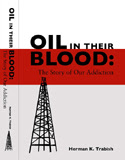POLAND, THE PRICE OF POWER AND THE PRICE OF MEMBERSHIP
The cost of electricity is going to go up in Europe. There’s little doubt about that. The questions: How much? Why? And who will get the blame?
In Phase 1 of the European Union (EU)’s fight against global climate change (2005-2008), European power companies got the credits they needed to emit greenhouse gases (GhGs) beyond their capped limits for free. In Phase 2 (2008-2012), most credits were given but a small portion, for the highest levels of GhG-generation, were auctioned, adding cost to emissions beyond the capped limits.
Power companies, seeing where this was going, started gaming the system by raising electricity and gas rates and blaming the increases on global climate change. Some made a pretty penny.
In Phase 3 (beginning in 2013), the EU is going to auction the majority of the credits through its Emissions Trading Scheme (ETS). Credits for the privilege of generating emissions beyond capped levels can be bought and extra credits from keeping GHGs below capped levels can be sold on the ETS-run exchange.
The process is likely to increase competition for the credits and, as a result, drive the price for them up. This will increase the cost for emitting beyond capped levels and the electricity generated by doing so.
Ratepayers in emerging EU economies, mostly the newer, Eastern European members that are reliant largely on dirty coal, will likely pay the most noticeably higher power prices.
According to the EU, the price of power could jump 22% during Phase 3 but it will be due to the rising cost of coal and oil, not the cost of emissions.
Polish officials disagree. Bigtime. One says the EU-imposed auctioning of emissions credits will drive the price of their 90+% coal-generated power up 100-to-300%.
Barbara Helfferich, spokeswoman, EC Environment Commissioner: “Our research shows that only 15 per cent of any electricity price rise in Poland would be owing to the ETS…”
She added that the 15% figure is based on oil at $60/barrel. With oil at its current $100/barrel level, the cost of GhG auctioning is even less than 15% of the power price increase.
The EU says electricity prices in Poland and other economies dependent on dirty power (Poland, Estonia, Bulgaria, Greece) will rise more than those in EU nations with more developed New Energy sources but insists the program must go forward in 2013. Besides standing firm on its commitment to fight climate change, the EU wants to interrupt the power companies’ gaming of the system.
Furthermore, the EU says there are cushions for nations like Poland built into its program. Poland will get €1bn ($1.48bn, £800m) every year from permit auction revenues with which to mitigate price inflation and develop New Energy.
One European official has suggested grouping the less developed economies, giving them a separate set of caps and bringing them into the system more gradually.
The alternative, some fear, is what NewEnergyNews has dubbed “emissions rendition” and what many in Europe call carbon leakage.
Krzysztof Zmijewski, former head/government adviser, Polish grid: “As a result of this price rise we will have so-called ‘carbon leakage’, which is in fact industrial activity leakage, mostly outside of the European Union area. For Poland it could mean the loss of 500,000 jobs. Such a big rise in unemployment could result in a new wave of emigration to countries in Western Europe…”
 The EU is determined to impact global climate change in Phase 3. (click to enlarge)
The EU is determined to impact global climate change in Phase 3. (click to enlarge)Threat to Poland’s energy prices
Adam Easton and Fiona Harvey, August 31, 2008 (Financial Times)
WHO
European Commission (EC) of the European Union (EU); Barbara Helfferich, spokeswoman, EC Environment Commissioner; Krzysztof Zmijewski, former head/government adviser, Polish grid; Jerzy Buzek, former Polish prime minister, EU energy committee
WHAT
In pushing EU nations toward significant greenhouse gas emissions (GhGs) cuts, the EC may be imposing unduly burdensome restraints on newer and less developed members still reliant on emissions-generating sources for their economic engines.
 The power sector has profited from the early emissions-pricing process. (click to enlarge)
The power sector has profited from the early emissions-pricing process. (click to enlarge)WHEN
- The EC’s goals for the EU, proposed in January 2008, is the “triple 20 by 2020:” 20% of power from New Energy, 20% better efficiency and a 20% cut in GhGs
- The goals apply for Phase 3 of the EU climate change fight that begins in 2013.
WHERE
- The EU consist of 27 member nations.
- Case in point: Poland (Capital – Warsaw).
WHY
- The EU Emissions Trading Scheme (ETS) is the mechanism by which member nations control and reduce their GhGs.
- At present, a portion of EU ETS emissions credits are given to industries, keeping the price of emissions relatively affordable. In Phase 3 (2013), credits will be auctioned, driving the price of emissions-generating power up. This will be a burden on less developed nations like Poland who have yet to develop New Energy resources.
- Poland gets 92.5% of its power from dirty coal plants. Therefore, 1 megawatt of power = 0.94 tonnes of GhGs. (Comparison: In Sweden, 1 megawatt of power = 0.02 tonnes of GhGs.)
- EU estimate: Auctioning emissions credits will increase power prices 22%.
 Planning for the next phase includes self-correcting mechanisms. (click to enlarge)
Planning for the next phase includes self-correcting mechanisms. (click to enlarge)QUOTES
Krzysztof Zmijewski, former head/government adviser, Polish grid: “The first result [of auctioning permits], which is very easy to calculate, will be a dramatic rise in electricity prices of between 100-300 per cent. That’s because we are based on coal and we will have to [buy more] CO2 allowances than any other country…”




0 Comments:
Post a Comment
<< Home